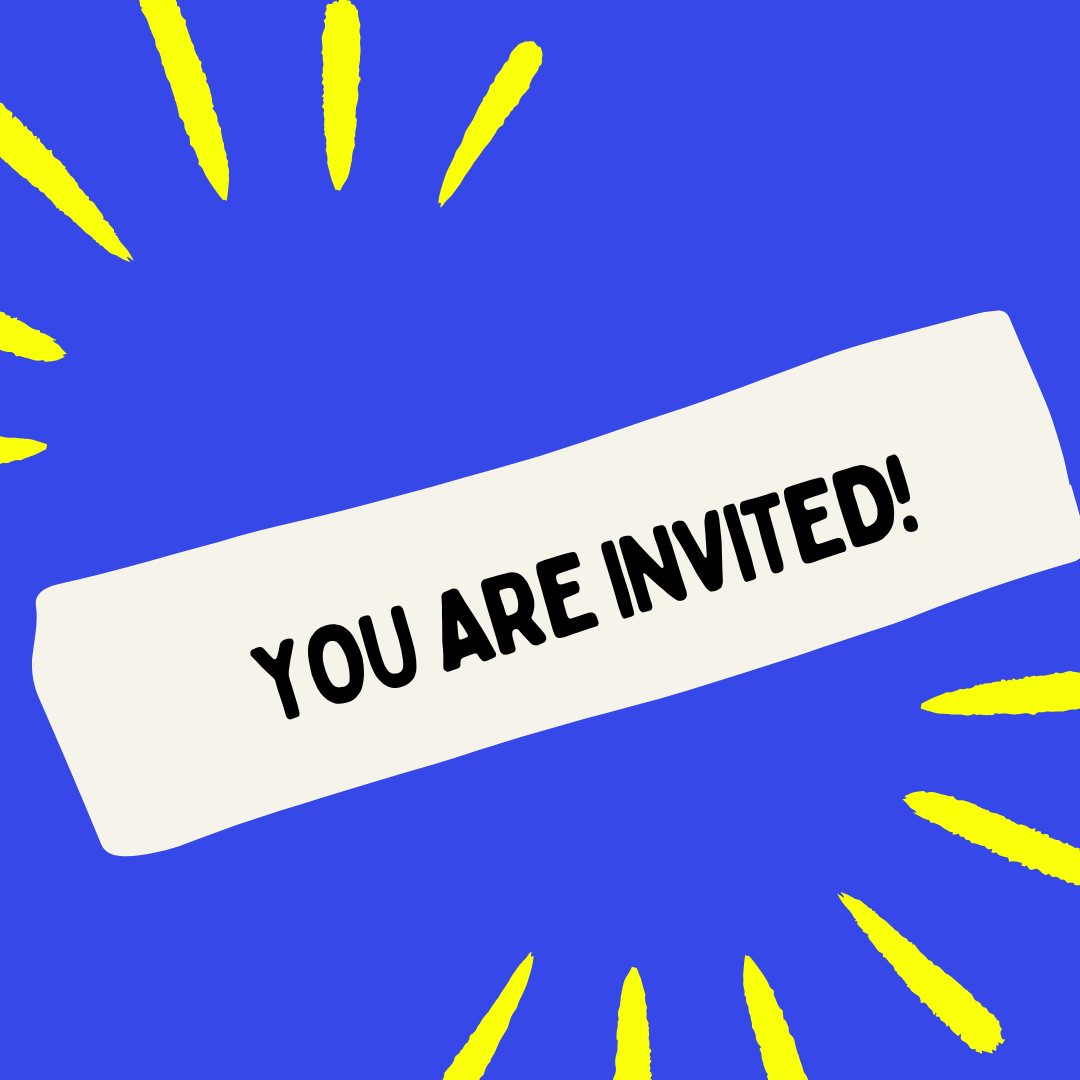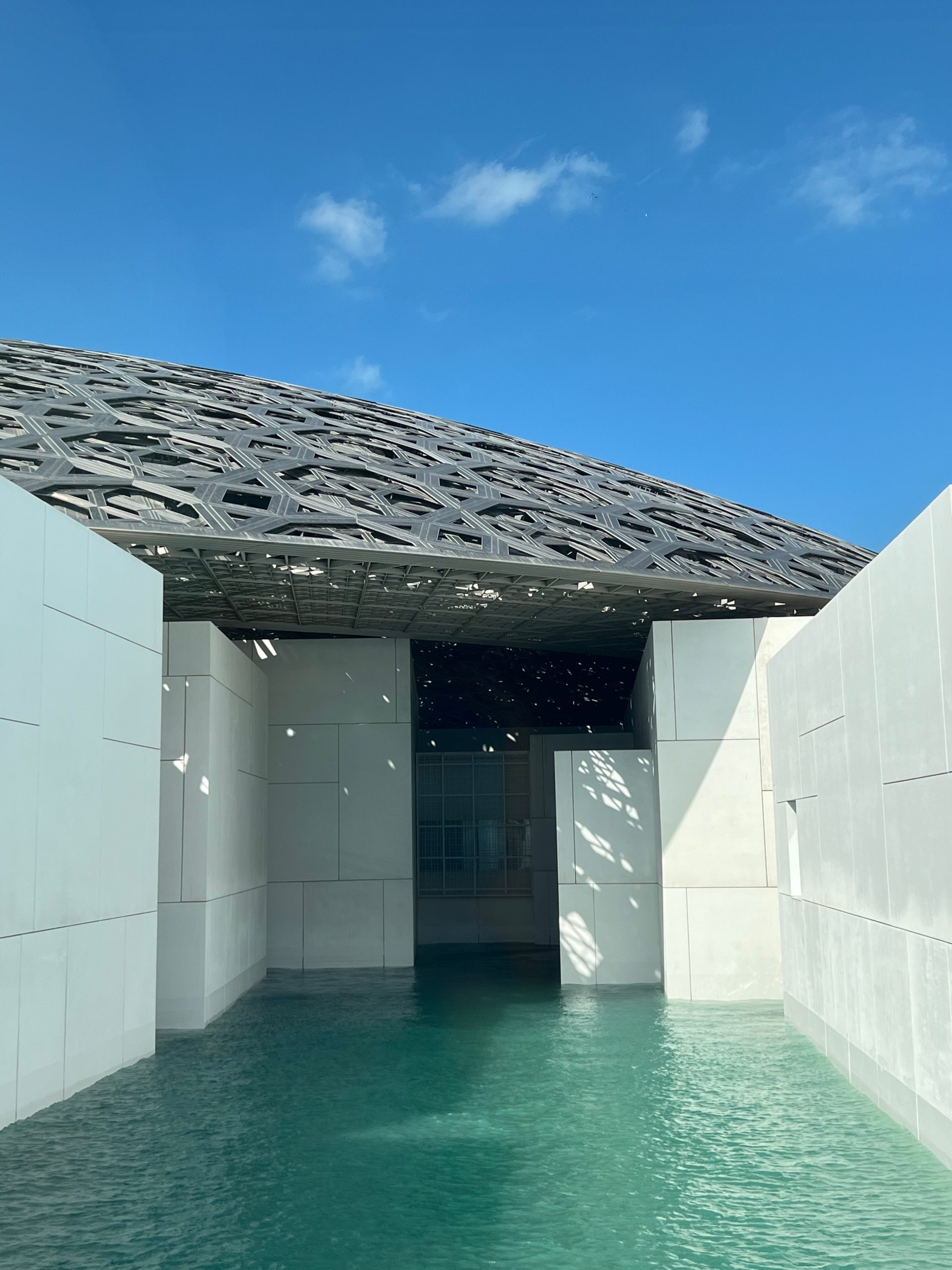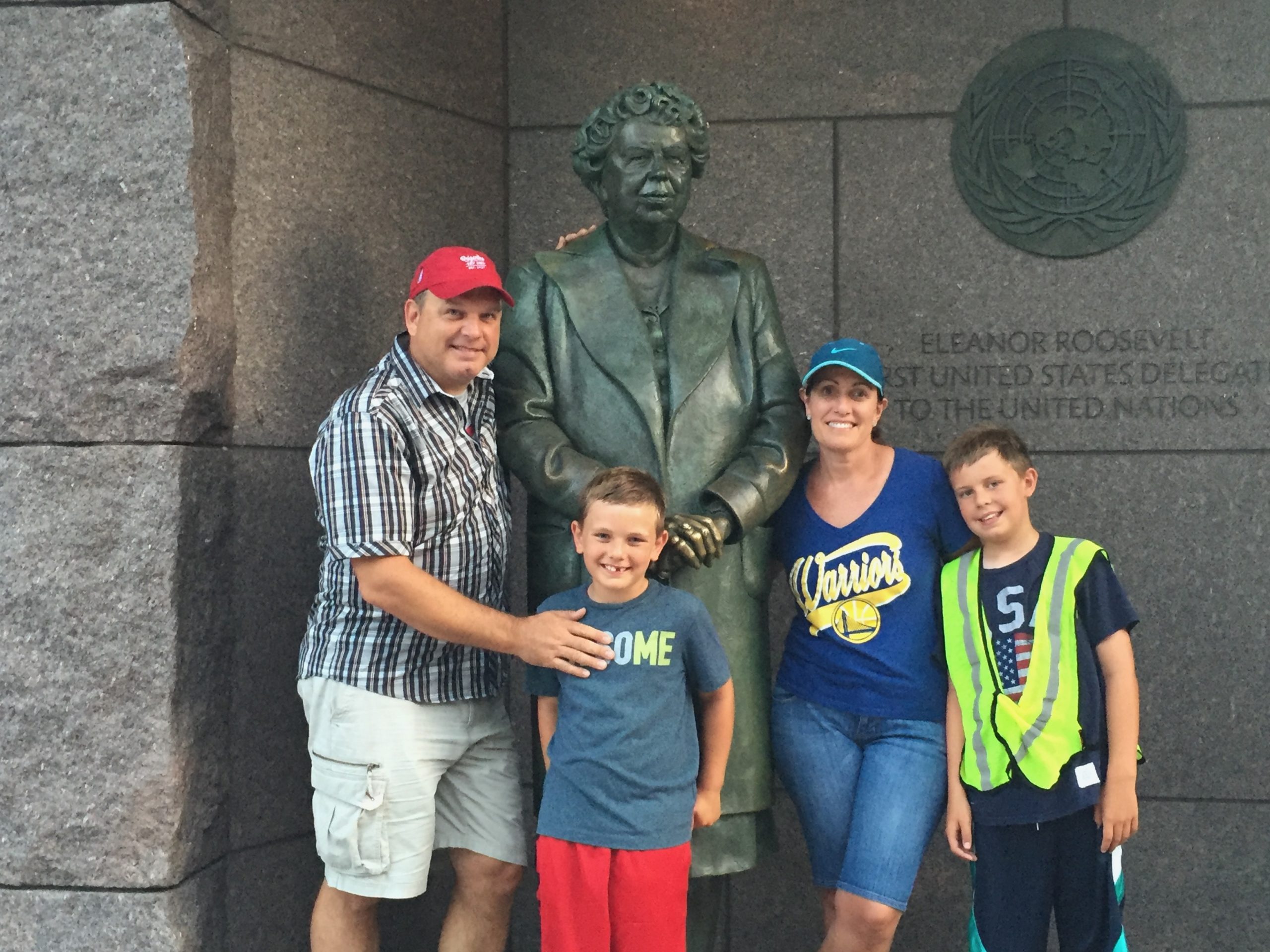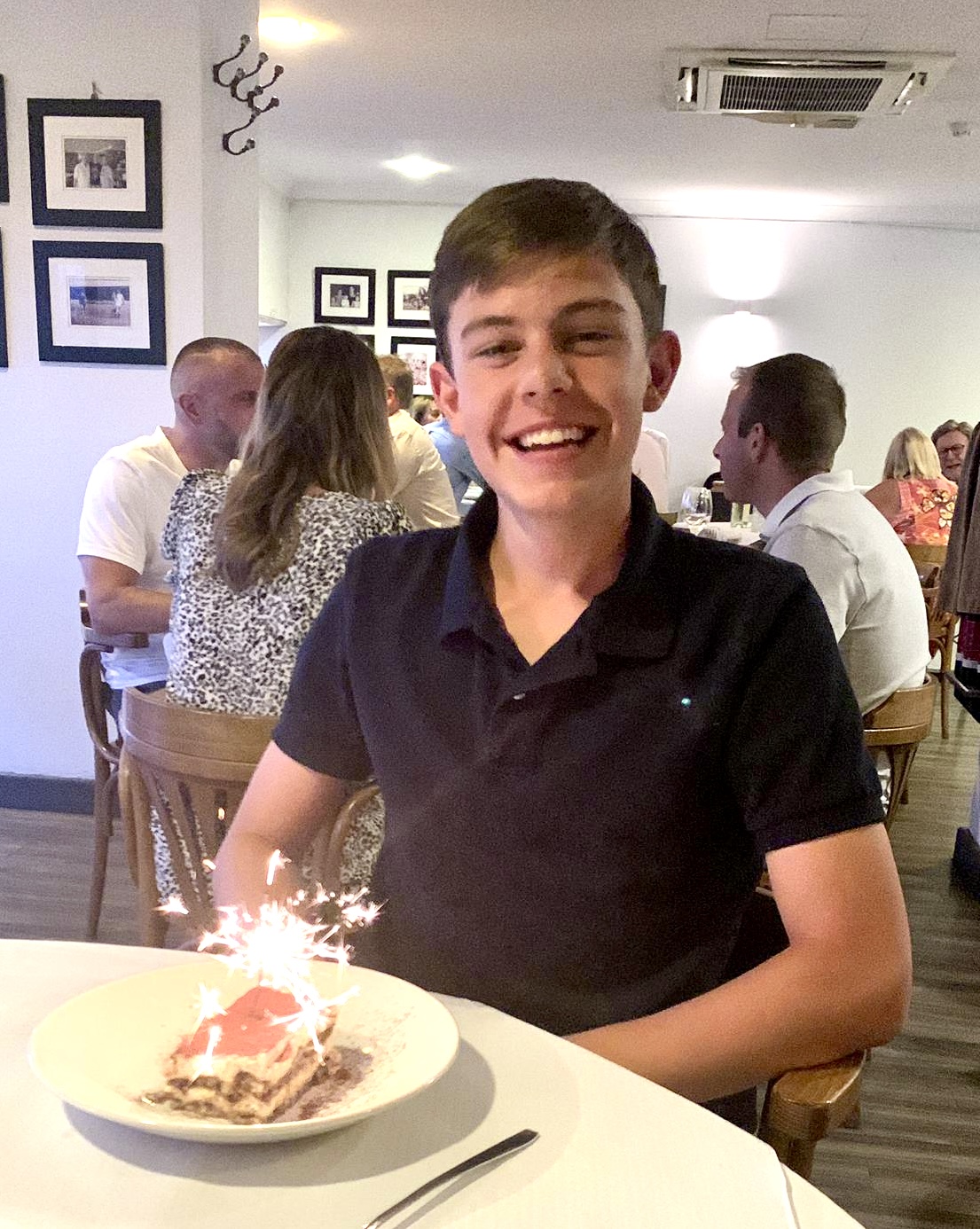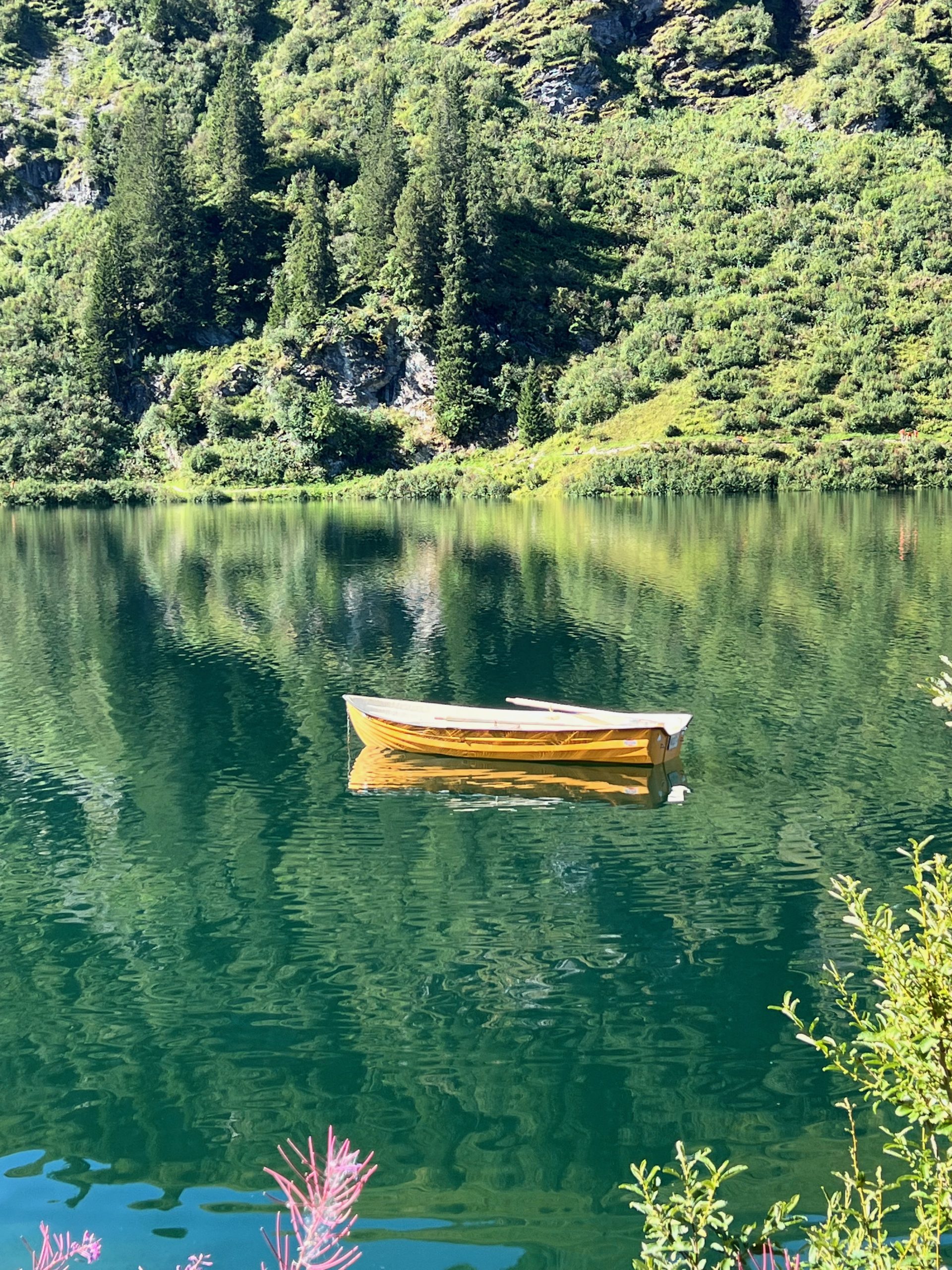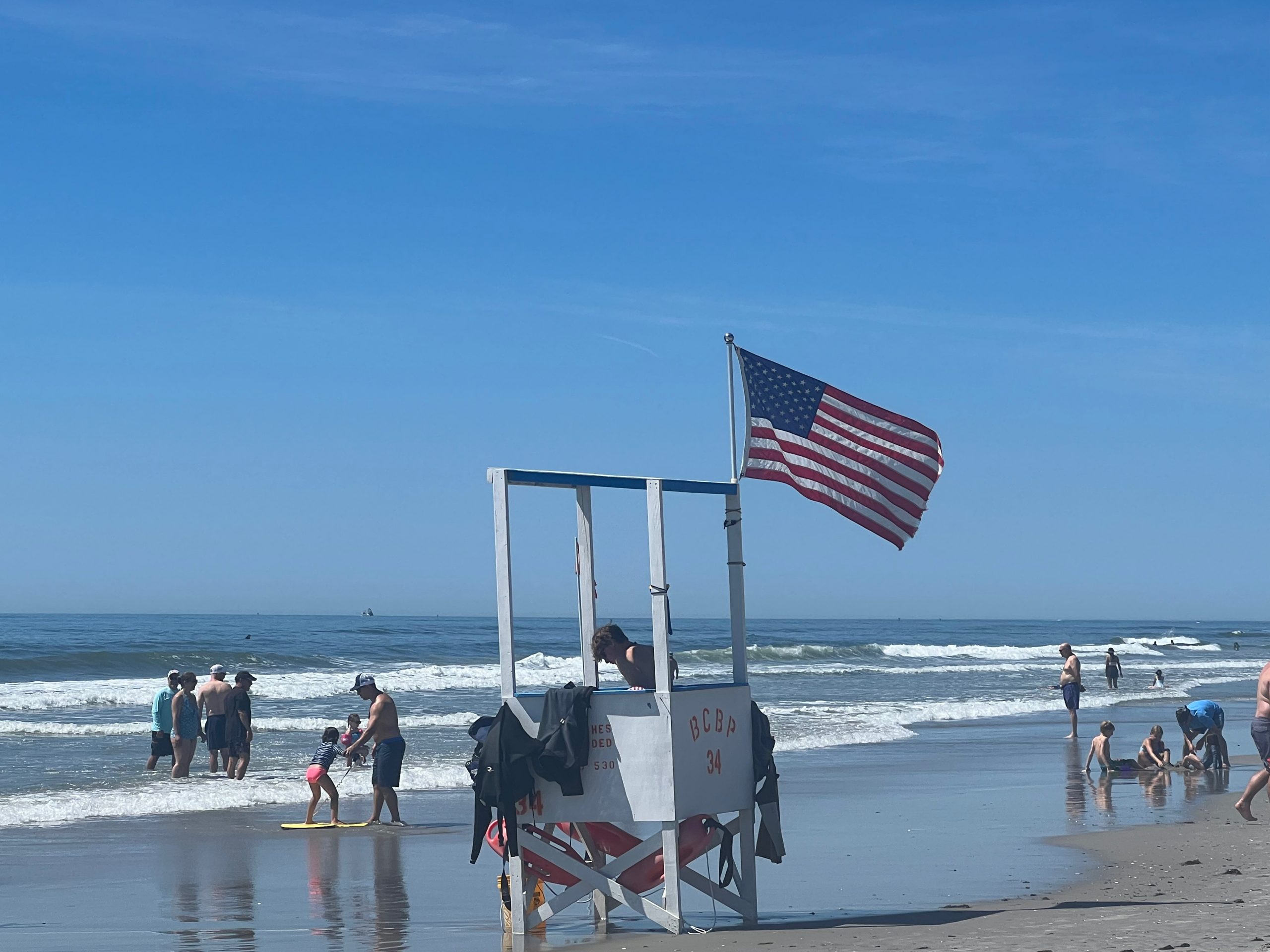Hi Everyone!
I appreciated all of your insights on my personal power writing last month. I love to learn from others’ life experiences. Life is so rich when we share our insights with one another.
As I continue on my journey to create this current version of myself, I am struck by how important it is that we help one another with what we have learned along the way.
Joseph Campbell, the American writer and professor who studied myths throughout time, coined the term the monomyth. It means there is one narrative within every story throughout all civilizations. Campbell studied thousands of myths and legends to discover that there is a central hero in each adventure who follows a familiar pattern. From Jesus, to Persephone, to Luke Skywalker, we are all the heroes of our own life.
When we think of our life as an adventure and ourselves as the hero in it, it shifts our perspective and creates a sense of wonder. It also gives us permission to follow our instincts and take risks. It is true that we all have responsibilities and cannot take off to sail around the world at a moment’s notice – or can we? We can say YES to more than we think we can. If we have the goal of becoming the best versions of ourselves, we can be adventurers – even without a big life transition to navigate.
As the heroes of our own life, we do not give up or regress when faced with adversity. Instead, we face the challenge, overcome and learn from it. When we expect more for ourselves and from ourselves it takes us out of our comfort zone. The comfort zone is our ego’s domain. Whereas our soul is always calling upon us to grow. The hero’s journey can take place on a battlefield or in an office cubicle. Becoming a parent is an example of a journey. It’s such an important role, and, after time, the demands of that role wane and we need to embark on a new path.
I mentioned at the beginning of this piece that it is important to help one another. In the third stage of Campbell’s monomyth, the hero returns from her journey she must share what she has learned with her community. This is what elders do. In today’s society, we need more elders. In civilizations throughout time, the wise elder played an important role as the custodians and holders of sacred knowledge. They helped others by guiding and bridging the past, present and future. We all have access to our inner elder regardless of age. Michael Meade calls the first half of life, “Survival Mode” and says that we must take what we learned in survival mode and teach others. If we have learned important life lessons or have specific skills that we are passionate about – we must pass them along. We must not choose idleness.
I have learned so many things about how to take care of myself during a challenging time. How to let adversity shape me, but not own me. I look forward to sharing so much more. I invite you all to to say “yes” to more journeys and to help others with what you have learned. Until next time!
Learn to get in touch with the silence within yourself, and know that everything in life has purpose. There are no mistakes, no coincidences, all events are blessings given to us to learn from.
— Elizabeth Kübler-Ross
Blessings and light,
Ellen
Hello Everyone!
Happy Spring! I was humbled by the responses I received from my last writing. It was a good reminder of how much community I have in my life – it just takes reaching out!
I love the vernal equinox – there are signs of life emerging from birds singing to shrubs and trees budding. As nature undergoes one of her biggest transformations, I have been thinking about the concept of personal power which is vital during times of transformation. It’s a term that we’ve all likely heard. Albeit an abstract one. If I asked a group of people what personal power means, there would be multiple definitions. Power is such a meta term, isn’t it? Everywhere and in everything.
My definition of personal power has formed over time through a lot of personal trial and error. I’m going to differentiate some common ways I think about personal power to get started because the topic of power is so interwoven into life. Personal power differs from external power. External power is found outside of us — in the collective within societal systems and structures. Examples of external power are patriarchies, religion, wealth, the rule of law, and in the USA in particular, the gun lobby and celebrity. These systems and groups of people in the environment have enough power to make what they want happen at a large scale. Usually, it’s ego driven or not a power that is connected to the greater good or even the heart for that matter.
There’s personal power in the workplace. The expert has personal power. As does the influencer who has referent power due to sharp interpersonal skills. Those are useful types of power that can be learned. I’m talking about our inner personal power. Something we all have and just need to pay attention to…
Inner personal power is individual and pure. It’s something we all have and it comes from within. Inner personal power in action is our agency and advocacy for Self, with a capital “S”. Personal inner power is also a stance: I am myself without compromise.
Personal inner power is also a stance: I am myself without compromise.
One way is when we follow our inner knowing or intuition. Einstein called intuition sacred and said it was our 6th sense. Steve Jobs said intuition was a higher form of intelligence – higher than intellect. Both of these smart dudes got it right! It has been proven that there is no rational thought when using our intuition. There is no mental process. It comes from your gut and is instantaneous – often described as felt sense. The source of intuition is beautiful and unique to each of us because it comes from our spirit or soul. When we act upon our intuition, we are using our personal power. Intuition can be something as simple as the flash of an idea to add a different spice to a dish that is not in the recipe and it turns out to be delicious. Intuition can tell us what not to do either – there are stories of people canceling travel due to a gut feeling and then being saved from a potential tragedy. I’m sure you all have your own stories of when you used your gift of intuition.
There are two ways we use our inner personal power. One is intuition and the other is instinct.
There is another way we use our inner personal power. It’s when we use our instincts (a mental function) to make a decision or choice. Often with instincts we are quickly relying on data to make decisions. Humans make an average of 35,000 decisions a day. Many of these are quick instinctual decisions that require some brain function, but not a whole lot. Like what we want to eat for dinner or whether or what program we stream. When we stick with our initial instinct or what we know is right for us, we are in our personal power. I’ll give an example of inner personal power that a friend recently shared with me. (Name changed to protect the innocent.)
“Carol” recently celebrated her birthday which fell mid-week. She had various plans throughout the weekend to celebrate with family and friends. But, Carol’s mother didn’t want to wait. She wanted to see Carol on Carol’s birthday! So she asked Carol to take her to church on the morning of her birthday. This would require Carol to get up very early to pick up her mom, take her to church, drop her off and then get herself to work before 8:30am – all on her birthday! Carol said her first response was “Heck no. I don’t want to do that!” Then, as Carol retold me the story, she shared her line of reasoning on the journey from knowing her answer was no to sitting in church with her mom. Keep in mind, while she was telling me the story, I was listening to Carol’s certainty of how she didn’t want to take her mom but then how she talked herself out of doing what she wanted to do – and on her birthday no less! She said things like, I was annoyed because I knew my mom was trying to guilt me into getting her way to see me on my birthday. But, then I felt guilty for thinking that and I realized my Mom is just trying to help me be a good Christian. It went on and on until finally I said, “Did you do anything you wanted to do on your birthday? And, she laughed and winced simultaneously and replied, “As a matter of fact, I didn’t.”
Carol’s example is one of not using our inner personal power. She knew what she wanted to do, but she talked herself out of it. I know I have been in Carol’s shoes before. I have found when I second guess myself by either not following my intuition or listening to my instinct, I am squandering my inner personal power.
The consequences of doing so are steep. When we give away our personal power, we begin to lose our connection to ourselves. If we allow this to happen repeatedly, our intuitive voice begins to dim and the clarity of our instinct becomes muted. We begin to live in a state where we don’t really know what we want because we no longer listening to our own answers and ultimately, ourselves.
In periods of transition, it can be scary because often we do not know what the outcome will be. We may have a plan, but plans need to be flexible. The very nature of change is that we are embracing something new – venturing into the lush forest of the unknown.
Intuition and instinct both come rather quickly. If you find yourself hemming and hawing and then talking yourself out of what you want – ask yourself, am I trying to please others? What is it I truly want? Why am I trying to convince myself otherwise? Begin to notice as you go through your day how you use your inner power or give it away. Lean on someone you really trust and ask them to listen to your process as you make some of these choices in your change. Ask them if they can hear you talking yourself out of what you really want or coming from a place of fear and allowing that fear to drive your decision. You got this.
Be yourself – without compromise!
Blessings and Light,
Ellen
It’s been awhile since I have reached out. It’s been a busy time resettling in the USA after over four years in Europe. It has been a true homecoming to be reunited with people I love.
A YEAR OF BIG CHANGE
2024 is a year of big change. I am returning to full-time work in my field of Organization Development. I have been consulting and coaching to organizations for for almost twenty years and genuinely love working with people and systems to help them reach their full potential. I am grateful for my work and the outstanding leaders I work with.
My biggest creative project for the year will be taking steps to design a new life for myself. After 17 years of marriage, my husband and I will separate and focus on co-parenting our boys. A lot of time and effort has been put into this big decision. I am sincerely grateful for all the beauty that we have created together. I am also excited to create something new for myself while still giving my all to my most important roles — Mom and Working Professional.
TRANSITIONS
Transitions can be planned or forced upon us. And, while each transition is unique to the individual and the circumstances of their life, there are guiding principles, habits, and perspectives that are helpful to navigating them. Given my propensity for change and commitment to personal growth – I’m no stranger to these liminal spaces. I will be learning as I go as well as drawing upon the inner-wealth I have cultivated.
I considered hunkering down through this rebirth process to produce something to help others on their journey when I came out the other side of mine. But, that felt hermetic and too safe. Instead, I will share as I move through the process to create what I want for myself, at this stage of my life, real-time – while it’s happening.
AN INVITATION
Whether you are going through the process of ending a relationship or a job, or perhaps your children are off to college and beyond, or you are wondering what’s next and you want to pursue a life that has more joy and less fear – whatever transition you are stepping into – I invite you to join me on my journey as you travel along yours.
If you do join me, and I hope you do, here are some clarifications to be helpful.
- Options to follow along: I’ll send emails via my email list (this is how this email got to you) and also post on my Instagram a link to my website where my short essays will reside. I ask that you share this email with anyone you think would benefit.
- Sporadic and few emails: The frequency of the emails will be few and sporadic. When I want to share, I will. Today, when I join newsletters of people who interest or inspire me, I almost as quickly unsubscribe because the volume of emails is too much for me to absorb. I won’t flood your Inbox.
- What I won’t share: It’s human nature to be curious about what happens to others’ relationships when they end. I won’t share those details out of respect for our family.
- What I will share: My essays will include personal and practical information that will have universal underpinnings we can all relate to. Examples could be:
- How we can all partner with a loving universe to co-create from our heart not our fears
- Insights about relationships and their constant cycle of death and rebirth including the relationship we have with Self
- How acceptance is courageous and can yield peace and possibility
- How to use the symbols and archetypes in our everyday life to transcend challenges and align with our soul’s purpose
- My Hope: Is that through sharing my experiences in creating what I want for myself in this next chapter, that there is something ignited, reflected, touched within you that helps you on your journey.
I’ll leave you with one of my favorite quotes about change.
It’s not so much that we’re afraid of change, or so in love with the old ways, but it’s that place in between we fear…it’s like being in between trapezes.
M. Ferguson
I look forward to you joining me on the trapeze!
Blessings and light,
Ellen
You offer young and old a welcoming spot to sit. Your long back provides space for food and drink to be feasted upon. A perpetual invitation to make memories, center routines, birth conversations, hold hands, and celebrate life. You ask us to come prepared, timely, and ready to partake in grace, community, and presence. For some, you invite to not only play, but to do the work of life.
If you are set and ready to receive but someone does not arrive. Naturally, you wait. Who could forsake the gifts that you offer? Surely they are remiss. You remind them of the beauty and promise you hold. Yet, they still do not come. After awhile, their cutlery and placemat journey back to their respective drawers, and the napkin, with all its utility, travels to the neighboring seat, to serve those who choose to participate.
Our family of four humans and three animals returned to the USA in August after four years in Zurich, Switzerland. Repatriating to my home country has been more complex than I imagined. In truth, I didn’t imagine any complexity. I’m American, how hard can it be? So, when we learned my husband’s job was relocating to the USA, I leaned in with my “up for anything” approach to life. Though, the definition of ‘up for anything’ has changed considerably with age…bungee jumping and canyoning have been taken off the bucket list.
Being adventurous is obviously fun and exciting. And, uncomfortable. That’s the paradox of change – it’s both difficult and exhilarating. Being in situations that are new deepens empathy – it’s a fact. My foreigner status allows me to connect to how hard it must be for others. I also feel gratitude because my situation as an expat on my husband’s work visa was much easier than the Ukrainian refugees I met in Switzerland.
Many of my expat friends with more countries and years under their belt forewarned me that the transition home is tough. It feels like the rug has been pulled out from under my feet. With a twelve-hour flight, my old life is gone and it feels abrupt and surreal. All the routines, cultural norms, and ways of life – that were so different four years ago – that I adapted to and thrived in disappeared almost instantly.
I didn’t drive a lot in Switzerland. I often walked to the grocery store. My kids took public transportation to school and sport. Of course, I am aware that parents are their children’s chauffeurs in much of the USA. I was one myself just four years ago. But, I grew to love taking public transportation over driving.
The variety of food and the size of grocery stores in the US is overwhelming. I have now taken to ordering groceries online because it’s easier for me to sift through the items that way rather than walk up and down the aisles. There’s an entire aisle dedicated to hard seltzer with alcohol. I haven’t even heard of hard seltzer alcohol. I’ll save going to Costco for 2024 because if I do go, I think I’ll faint.
Ordering anything online in Switzerland was rare; there’s no Amazon.ch. And, I liked it. I quickly realized we didn’t need all that stuff, most were just impulse buys that could be easily solved by a workaround or going without. Our household belongings are currently in a container somewhere on the Atlantic Ocean, and with school starting for our boys, I’ve ordered from Amazon almost every other day. While it’s easy and time-saving, it doesn’t feel like me.
There are a lot of pros and cons to living in both countries. My discomfort isn’t a tally about which country is better. It’s more the sense of loss for the life I adapted to and grew to love. A cardinal rule of expat life is not to expect your host country to be the same as the country you left. In our four years in Switzerland, we met people who would flame out. They just couldn’t adapt to the change and would leave. I don’t expect the USA to be like Switzerland – but I do miss my old life.
In the field of change management, where the rubber meets the road is when people have to actually “DO” the work differently. That’s where change efforts live or die. If I go to work on Monday and how I start my day is different, the tools I used before are now gone and I’m supposed to use new tools, tools that I’m not that familiar with or my team is new, WOW, that’s hard. Ever switched from a PC to a Mac? My “personal workflow” has changed and I’m feeling the loss.
A little voice in my head asks periodically, “Why can’t you just be grateful you lived in Europe for four years?” Well, little voice, pipe down, I am. Gratitude isn’t a bypass for the hard bits in life. In fact, being able to feel gratitude when things are rough – no matter how relative – is the true gift of gratitude.
Every challenge forces us to discover a new path. I’m on a new path and it’s an opportunity to be more compassionate to myself and others. And, ultimately, increase my humanity. Besides, it won’t be long until I’m ready for the next adventure!
It’s that time of year. To reflect on the year behind us and to set our intentions for the upcoming year. Reflecting upon what we have learned makes us deeper, and richer, and expands our consciousness. This is all part of our growth as humans and as American novelist William S. Burroughs said, “When you stop growing you start dying”.
It is true. We are in constant cycles of death and rebirth in our lives. Think about your relationship with your work – it’s constantly evolving. Changes are always occurring with different problems to solve, applying our skills in different ways, developing new skills, or interpersonal relationships that stretch us. Our relationships with our loved ones are constantly evolving, too. As we have all experienced, there is always ample opportunity to improve communication! Ways that have worked before – no longer do and we must find new ways.
I like to begin every year by creating a theme or intention my year will be about and then reflecting on that word at the end of the year. I look at my journal and ask, “Did my year match the theme?” Often the answer is “Nope”! It is a good reminder that there is so much in this life that is out of our hands and that we truly have no control over it.
My theme for 2022 was “Connection”. Yet, upon reflection, it was quite an emotionally lonely year for me. 2022 had me dealing with some core aspects of my life that needed change and they were overdue for a change, so some aspects actually needed to die. I realized though all the loneliness, I found a deeper connection to myself. So, it truly was a year of connection, but definitely not in the way that I had envisioned. While the loneliness was very difficult at times, I’m much stronger and committed to myself and my happiness.
Here are three questions that I am using this year, including my annual theme question.
- Looking back on the last 12 months, did my year have a theme or emphasis in a particular area? How and Why?
- What did I learn this year?
- What am I most proud of?
- In what areas of my life (work and personal) did I have to let go or say, “I just don’t know”?
I have never regretted the time I have taken to reflect upon my life. These exercises have made enriched my life and so I encourage you all to go somewhere quiet and take time to wrap up 2022. You deserve it.
“For all that has been, I thank you.” For all that is to come, Yes!”
Dag Hammarskjold
I was in the 5th grade when I first heard the saying,
“Great minds discuss ideas, average minds discuss events and small minds discuss people”.
At ten years old, this phrase was profound. I had never considered the quality of my conversations! Hearing the quote inspired me to be someone who talked about ideas.
Though the quote’s origin is unverified, it was First Lady, Eleanor Roosevelt who popularized the provocative phrase. It’s her birthday on October 11th. Eleanor, as I refer to her in my private conversations, has for years, been in my top three people whom I would love to go back in time to meet. I feel as though I have known her all my life.
Eleanor was introduced to me at a young age by my father. My Dad was born in 1923. From age ten until 25, Franklin D. Roosevelt was our country’s President and Eleanor, our First Lady. I remember hearing a lot about the Roosevelts. My parents, who were interested in politics, often spoke of them with high regard. FDR served four terms — the longest-serving President in US history. Many critical events that shaped our country’s history on the world stage like the Great Depression, World War I, and World War II, occurred during his Presidency.
As much as my father talked about FDR, he equally mentioned Eleanor.
He told me that she held press conferences where only female reporters were allowed to attend. One particular memory I have was a comment he would make repeatedly in a solemn tone that ‘the world was a better place because of Eleanor Roosevelt’. He was referring to her work with the United Nations. After FDR died in 1945, she played a prominent role in shaping human rights. Eleanor was influenced by the destruction of World War I and visits with Holocaust survivors after World War II. She became a passionate advocate for basic human rights — for everyone.
In high school, for an assignment, I wrote about Eleanor’s work as Chairman of the Human Rights Commission with the then, newly formed United Nations. She was appointed by President Harry Truman as a member of the first U.S. delegation. The Human Rights Commission was a big deal and hard work. It was not an easy task with member countries such as Russia, Cuba, South Africa, and the United States at the table. All had to agree on the not-so-basic ideas of the protections and rights of others. The Commission successfully created a Universal Declaration of Human rights that would serve a template for human equality for decades to come for UN countries.
Eleanor was born into a family with means but had much tragedy in her life.
She lost her mother when she was eight, and her father two years later when she was ten. Her brother died of polio. When she was two and a half years old her family was on the Britannic when it collided with another ship in fog and she was lowered into a lifeboat and taken to the other ship. She was traumatized by the incident and would not travel by sea again. In her teens, she was sent to boarding school in England and credited that experience and a female headmistress there with growing her confidence. It was remarkable that a First Lady of the United States before the 1950s took on an active role in her husband’s political career and would then move on to an even bigger world stage and use her influence skills and knowledge to work for the rights of others.
In college, Eleanor appeared a few times, most notably in a Woman Studies class. Also, in my Psychology studies via Abraham Maslow. Almost everyone who has had an ‘Intro to Psych’ class remembers Maslow’s Hierarchy of Needs. Maslow used the lives of Eleanor Roosevelt and Albert Einstein to understand what made highly motivated people tick.
In my 50s now, I am even more grateful for Eleanor Roosevelt. She has influenced my thinking and inspired some of my decisions in life. At a few junctures in my life, I have drawn on her for inspiration and asked, “What would Eleanor do?” She encourages me to make bold decision, to stick up for the less fortunate, and treat others with respect and dignity.
Eleanor Roosevelt was an advocate for the civil rights of African-Americans, laborers, women, children, and those less fortunate. She would certainly be an advocate for LGBTQ rights today and other social justice causes. She would be on the front lines of the Roe vs. Wade overturn. Reminding all that women should have the right to make their own decisions about their bodies. She firmly believed that all lives were valuable and would be an advocate for pro-life as many abortion rights people are. She could hold the duality and help people understand that pro-life is the protection of all human life – not just the unborn. So, with Eleanor’s birthday approaching, I’d like us to all find our inner Eleanor and recognize that the way we treat each other is the cornerstone of our integrity as a country. Human rights begin close to home.
“Where, after all, do universal human rights begin? In small places, close to home—so close and so small that they cannot be seen on any maps of the world”
Eleanor Roosevelt
I saw the blood wash over our then 14-year-old son Wyatt’s neck, face, and ears. He turned to me wide-eyed with that look of horrified-awkward-embarrassment that is all too common for teens. That same look is often directed at me — due to some unwitting parental offense. I had a rare moment of Mom glee because I had been in his shoes before.
His reaction was understandable. We were at the orthopedic doctor for his repeated knee supplication. A painful yet common condition in adolescence where the kneecap moves out of place during impact exercise. The doctor assured us that the testosterone coming his way due to puberty would be the best treatment plan. For boys, testosterone is nature’s hormonal elixir for strengthening and tightening the joints, tendons, and ligaments which in turn supports their growing muscle mass. Contrastingly, girls’ tendons and ligaments loosen with the onset of puberty. This is the female body’s way of preparing for childbirth. Knee supplication for female tweens can be quite problematic and painful. I digress with the single purpose to point out that this is another example of why women have to work harder for muscle definition (insert mic drop here).
Wyatt’s real pain at that moment was due to embarrassment and surprise. After a pleasant initial conversation with the Orthopedic surgeon, he was unceremoniously asked to stand up and take his pants off. A very reasonable request given we are at a Doctor’s office, but, there’s more to the story.
On my first visit to this same Orthopedic clinic after tearing my meniscus in our second month of moving to Zurich. I hobbled into the Doctor’s examination room without realizing it was in fact, an examination room. It was a spacious room with a simple elegant design. Pristine white walls, big windows with ample light filtering through. The furniture was a mixture of light wood and clear glass with clean lines. Two minimalist chairs sat behind a gorgeous glass desk that was home to a state-of-the-art Mac monitor with a small sleek keypad. Miraculously, the power cords were tied with a uniformity that only the Swiss can achieve. The office walls housed no anatomy posters or framed diplomas. Only a single minimalist screenprint adorned the west wall. The only other decor hinting it was a medical office was a small-scale anatomical human leg model that sat on the paperless glass desk. Off to the side sat an examining table that looked of Scandinavian design. Quite a contrast from the huge clunky American exam tables with their odd drawers on the side, built-in ladders with steps that no adult foot can fit on, and the cumbersome roll of cootie tissue paper that buffers your behind from the pleather. It’s a futile buffer because the minute you sit on it — it twists and tears. This exam table was so remarkable by its utilitarian elegance that it was unremarkable – my eye initially passed right over it. The same must have been true for our son.
The waiting room offered water bottles (still or gas), fresh-cut flowers, and a selection of glossy European magazines to peruse. All of this elegance and civility puts patients at ease. It felt as though I were going in for a spa treatment. There’s no rushing about. The waiting lobby is calm because the norm isn’t to cram the appointments in one after the other. When my doctor rose from his desk to retrieve me from the lobby, I didn’t know he was an actual doctor because I was so accustomed to a nurse or medical technician guiding me to the exam room, telling me to take off my clothes and sit on the massive aforementioned exam table only to wait on 30 minutes disrobed and cold until the doctor knocked and entered the room.
During my visit, when it became obvious that the man retrieving me from the pleasant lobby was in fact, the doctor. I joined him as he invited me in to sit down on the other side of his lovely desk. He asked me where I was from and if I prefer he spoke English, Swiss German, or High German. I explained in my very best bad High German that while I was new to learning the language, medical terms were still quite difficult for me to comprehend. My pride got the best of me – all German was difficult for me to understand, but given the circumstances, I was feeling more sophisticated than usual, so I bent the truth.
Both my son and I had very similar experiences up until this point at our respective appointments. After being welcomed into the aesthetically pleasing and disarming office, an initial conversation ensues about the presenting medical problem. It felt more like a cordial meeting than a doctor’s appointment. At my son’s visit, the doctor sipped a cappuccino in a gorgeous clear glass that showed the boundary line where the espresso and steamed milk met. The doctor was warm, spoke perfect English, and listened intently as my son shared the specifics of his recurring knee problems. Then, after a few follow-up questions, the Doctor said,
“OK, take your pants off.”
Cue the horrified-awkward-embarrassment look at the beginning of this story. There was a slight hand motion from the Doctor to go to the exam table just a few feet away. It was now evident that it was indeed an exam table. The doctor stayed at his desk. Wyatt sat frozen staring at me. I nodded (glee still hidden) and motioned toward the exam table. Wyatt rose from his chair and took two steps walking backward so as not to turn his back to us. He began to pull down his athletic pants in super slow motion. His affect appeared to be a combination of uncertainty and a frantic search for a bathroom or screen to hide behind. When he realized – this was it! Disrobing commences now! He pulled his left side down and then a little more on his right. And, so on and so forth until his pants were at his ankles and he looked faint. At this point, his humility getting a workout — I offered him some help and said, “I’ll take your pants and you can get on the table now.”
This scenario isn’t unusual.
I have talked to many of my American ex-pat friends living here and all have shared similar funny stories of their first Doctor visit in Switzerland. The scenario is mostly the same: clean, simple, aesthetically pleasing offices, an organized and tranquil lobby, a cordial medical conversation with the doctor, followed by an instruction to disrobe right then and there. Often, with whoever is in the room with you. I had a procedure where I was given in a steroid shot for my knee and the medical technician and Doctor were standing in front of me as I disrobed for the shot. The same for massages and physiotherapy. Just take your clothes off and get over it, dammit!
I’ve come to my own hypothesis about how this cultural difference plays out in a medical setting. It goes something like this… Europeans, in general, aren’t very modest when it comes to nudity. And, the Swiss are incredibly practical and timely, so perhaps the two norms together mean that the extra time to have each person disrobe in private for five to ten minutes is impractical and obviously, unnecessary!
I hope this post finds everyone rested and well after summer. For my friends in the Southern Hemisphere – spring is coming!
I am writing to give you an update. Four years ago this month, I launched Live Your Jam with a mission to help more people lead fulfilling lives. I am still as passionate about the mission today as I was in 2018. I was inspired to help more people — not just those in organizations. My plan was to scale Live Your Jam by holding workshops, and selling content, and services to have a broader impact. For four years, I didn’t sell any services or hold any workshops. That’s quite a track record. Clearly, not my Jam!
In the past three years, I’ve slowed the pace of my work and personal life – mostly due to our family’s move to Europe. The change has allowed me to experiment with what fulfills me and also become more mindful of how I spend my time.
I now work part-time in my consulting and coaching practice. The “extra” time I have is spent in nature, writing, and cooking. These restorative outlets feed my soul and give me more energy and focus, which has improved the quality of my work in helping leaders and their teams.
The integration of working less with other creative pursuits has been profoundly insightful. My ego has tried to sabotage my fulfillment with zingers like, “Are you living up to your potential?” or “Are you playing life ‘small’?” Luckily, I know that the thoughts in my head – are just thoughts and my mind’s attempt to keep me away from my whole Self. To be fair, I do think that there are times when we need to challenge ourselves and step into our full potential – as well as times when we keep ourselves small out of fear. In my case, I am happy with this change for now. So, I continue to notice these self-sabotaging thoughts and then let them go.
This leads me to share that my Live Your Jam website will be a home for my writing. I’m going to give myself permission to write whatever I want. In the past, I have written with the intention to provide people with tools and actionable steps – things that have worked for me or I have learned via my amazing clients. Because I’m so passionate about living a life where we each use our unique gifts – it’s safe to say Jam themes will remain dominant. I will send out digests of my writing periodically through this email list for you to peruse or not! Feel free to stay on the list if the change sounds appealing or you can unsubscribe at any time.
Fulfillment is a personal journey that is ironically found in each moment. I wish you all many moments of Jam.
Blessings and light,
Ellen
We returned this week to Switzerland from five weeks in the USA. Our summer was focused on family and practical matters. My mother-in-law passed away in the spring at the age of 89. She lived a full life and passed peacefully in her favorite chair. We are happy for her.
My husband is an only child so the responsibility and honor of her funeral and clearing out her home fell to him. He rose to both occasions beautifully. The funeral was a loving event. It was wonderful for our two boys to hear stories about their Grandmother from others – enlarging their perspective of who she was as a person outside of her role as Grandma.
Clearing out her home of 50-plus years was both challenging and sweet. The challenge was the sheer volume of things collected; some forgotten, some cherished over a lifetime. There were dumpsters involved, countless trips to Goodwill, boxes and boxes! of book donations to the local library, and saving or shipping sentimental items to other family members. The sweetness was found in treasures like old passports – Pat was a world traveler and had visited more than 20 countries long before I met her. Our teenage sons enjoyed the different currencies she collected from her travels – many no longer in circulation.
I was able to break away to fly across the country to visit my 93-year-old mother who was staying with one of my brothers and his sweet family. My time with them was grounding and fulfilling. Living in another country with a different language and distinct culture often feels like I inhabit two different worlds. The experience has sharpened my ability to be present because I realize that time with people I deeply love is rare.
Air travel with a dog is full of complexity but given the length of our trip, we took our dog, Chester. If there was an award for the most well-behaved and optimistic traveler – Chester is a shoo-in. There are a lot of humans who could learn from Chester. He traversed the two continents with ease – 6,800 miles/11,000 kilometers one way. His presence on this trip provided a sense of stability that we all craved amidst the chaos of boxes, piles of organizing belongings, and the dwindling seating and sleeping choices due to furniture donations. He also gave our boys a sense of duty. There are coyotes on the small island my mother-in-law lived. And, Chester’s size while perfect for flight travel is also perfect coyote prey. Our boys kept a watchful eye on him during walks and in Pat’s beautiful backyard that abuts the forest.
Our two ginger cats remained in Switzerland under the care of a kind and gentle Ukrainian refugee. It was a win/win for all of us. Five weeks is a long time even for independent indoor/outdoor cats to be without their people. We have been home five days now and the cats have barely gone outside. Instead, they prefer to sit next to any one of us and soak up the touch and love they dearly missed. As I write, a feline is laying on my arm unencumbered by the up and down movement of my typing. He’s just happy to be with me. I feel profound love and empathy for our cats. I recognize the fragility and preciousness of their dependence on us and our connection to them.
As I headed out to the grocery store to re-stock the refrigerator after the 25-hour door-to-door journey. I kept the meal plan simple – a salad. At self-checkout, I realized I forgot to get a cucumber. Tired, I decided not to go back to the produce section on the other side of the store. I paid for my groceries, took three steps toward the exit, and glanced at the self-checkout station next to mine. There sat a lone cucumber! I immediately laughed out loud! I looked around to make sure it didn’t belong to anyone, paid for it, and said a sincere prayer of thanks.
I am blessed to return to a place and life that I love. I am humbled that I also am able to leave it for long periods to connect to people I love. I also see the Universe’s amazing sense of humor to bring us cucumbers just when we need them most.
Privacy Overview
Sign up for our Free Live Your Jam Newsletter to Get Your Free Soul Check-In Tool!
Sign up for our newsletter and receive instant access to our valuable Soul Check-In Tool. Learn how to create a daily practice to trust your intuition and listen to your soul.



